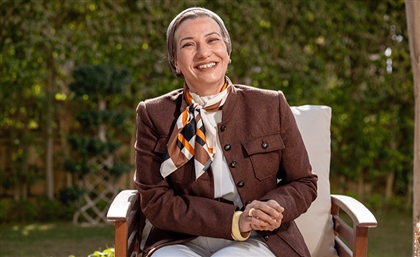Bu Nasser Touffar Steps Into ‘LIMBO’ His Third Full-Length Release
Across 14 tracks, Touffar delves into themes of displacement, political stagnation, and the tension between personal ambition and external constraints.

Bu Nasser Touffar releases his third full-length album, LIMBO, and his first entirely solo project under the same name. The title LIMBO nods to both its theological roots and its modern interpretation as a state of suspended uncertainty.
Across the album, Touffar confronts themes of displacement, political instability, and the delicate balance between artistic integrity and the pressures of the commercial music industry. LIMBO reflects his personal experiences and the collective struggles of a generation caught between ambition and the harsh realities of their environment.
Released via Beirut Records the album spans 14 tracks, with production from Aladin and contributions from Hello Psychaleppo, Illadib, Lynn Mayya, Nour Yamm, and Lethal Skillz. It blends genres—from boom bap to drum and bass—merging Arabic melodies with contemporary electronic sounds to create a diverse yet cohesive soundscape.
Opening with “Intro (2024),” a spoken-word piece set to Erik Satie’s Gnossienne No. 1, the album sets a tone of urgency, addressing the ongoing crises in Lebanon and Gaza. The classical arrangement, reworked by Aladin, establishes a sense of unease, leading into “Kazifi,” a track featuring Nour Yamm. Borrowing its title from the 1998 film West Beirut, the song critiques the erasure of certain Lebanese histories, particularly the marginalization of South Lebanon. Nour Yamm’s vocals, set against Sufi-inspired rhythms, underscore the contrast between spiritual resilience and political disillusionment.
The title track, “LIMBO,” captures the central theme of the album: the feeling of life as a pinball game, with external forces pushing and pulling in different directions. The drum and bass production enhances the sense of instability, mirroring the feeling of being trapped between conflicting worlds. This transitions into “Ya Dar,” a collaboration with Hello Psychaleppo that transforms Wadih El Safi’s classic into a tribal drum-and-bass anthem, merging nostalgia with restless energy.
The album’s skits serve as poignant interludes, with “White Noise” critiquing the Western media’s portrayal of refugees, playing on both the literal and metaphorical meanings of the term. “Christo” reframes European history as a narrative of colonization and extermination, layering xenophobic rhetoric over a closing soundbite from West Beirut to expose the absurdity of such views.
Tracks like “Visa” and “Geronimo” directly confront institutional barriers and historical parallels. “Visa” explores Touffar’s personal experience of being denied a French visa, highlighting the systemic discrimination faced by artists from the Global South. Produced by Illadib, the track combines oriental samples with a driving beat, mirroring the frustration embedded in its lyrics. “Geronimo,” named after the Apache warrior, draws comparisons between indigenous resistance and contemporary struggles against oppression, with Aladin’s layered production moving between urgency and reflection.
The boom-bap-driven “Majari,” produced by DJ Lethal Skillz, samples Das EFX and reflects on Touffar’s journey through class struggle. The track critiques the exoticization of poverty while staying grounded in hip-hop’s foundational themes of resilience and authenticity. “Chaturanga,” featuring Ebaa Monther, weaves irony and humor into a sharp critique of the cultural and social constraints imposed on Arab artists.
“Sa3at Sa3at,” produced by Beatlalipos, blends a Sabah sample with contemporary rhythms, creating a track that swings between extremes in both sound and lyrics. “Ilahi,” featuring Nuj, confronts the commercialization of the music industry, incorporating Muhammad Omran’s religious chanting to emphasize the tension between authenticity and mainstream appeal.
The album closes with the introspective “Shawarma w Therapy” and “Ice Coffee (2025).” The former, a humorous reflection on personal experiences, includes anecdotes from an afterparty in Amsterdam, with Nour Yamm’s production layering Arabic film and underground media samples. The latter, produced by Lynn Mayya, shifts into ambient, cinematic soundscapes, echoing the album’s opening but with a more reflective tone. The lyrics take the form of a conversation with a therapist, questioning whether paranoia is a personal affliction or a rational response to an irrational world. The title references a viral phrase from a boy in Gaza—“The situation is absolutely Ice Coffee”—capturing the album’s dark humor and balancing resilience with critique.
With LIMBO, Touffar continues to engage with political and social issues, expanding his artistic approach while remaining focused on themes of resistance, displacement, and identity. After 16 years in the underground hip-hop scene, this album marks a pivotal moment in his career. His debut, As'hab el Ard (2009), was released as part of the duo Touffar, while his second album, Tatleet (2014), compiled tracks recorded between 2011 and 2014. LIMBO is also a significant step forward, reflecting his collaboration with Beirut Records, a major label in the Arab music scene.
- Previous Article Eid Al-Fitr to Begin on March 31st in Egypt
- Next Article Saudi Arabia Introduces 5-Year Permanent Residency Without a Sponsor


























